Timber shortage: Port of King's Lynn sees imports double in a year
- Published
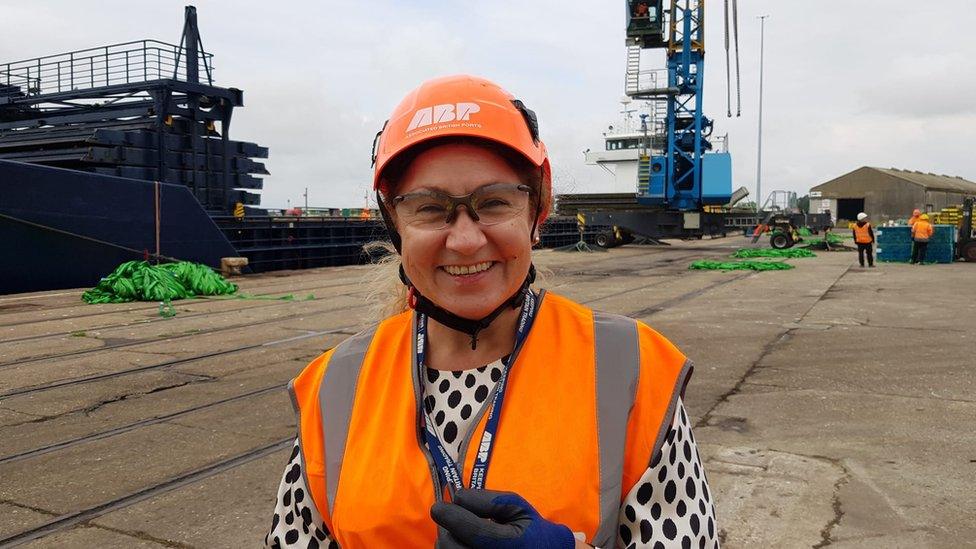
Kim Kennedy, port manager at King's Lynn, says double the usual amount of timber has been brought in during the past year
It might not sound as catchy as the "gold rush" or the "dotcom bubble" but those involved in the wood business claim the UK is currently in the grip of a "timber bubble". What has this meant for those tasked with bringing this building staple into England?
"It is really quite a unique scenario for us," says Kim Kennedy, port manager at King's Lynn, in Norfolk.
Alongside grain, aggregates, scrap and fertiliser, timber is the main commodity her port handles.
"We've seen timber growth double in the past year and we expect the year to close at about 220,000 cubic metres," she says, "which is double what we were budgeting for.
"We think that is largely driven by people being at home and the construction industry.
"It is for building - so either decking in your garden or for the construction of domestic housing."
The number of people employed here has risen from 35 to 39 - largely because of the growth in timber imports.
As demand has risen, so have the prices for consumers, with lead times for orders lengthening and costs more than doubling in some cases.
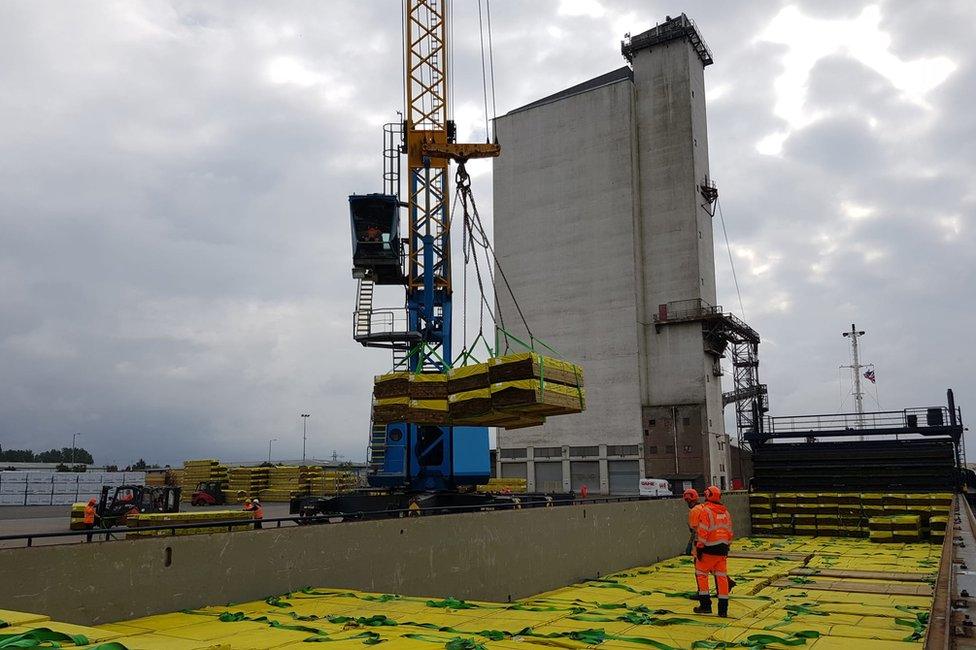
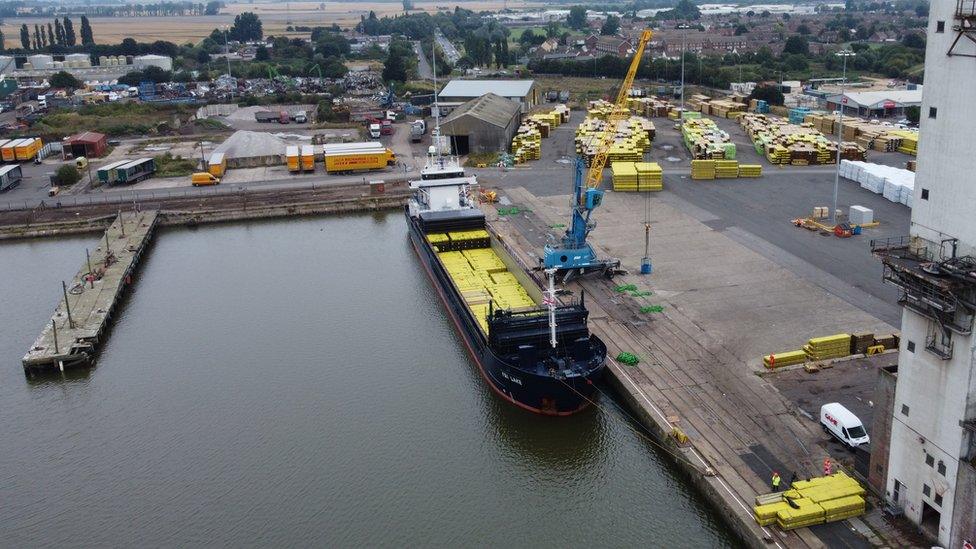
Most of the timber shipments arriving at King's Lynn come from Latvia, Finland and Sweden.
While many areas of the economy were hit hard by the Covid pandemic, ports were not among them.
"I think it has a lot to do with the commodities coming in," Ms Kennedy says. "Timber is growing great guns.
"We also had a really poor wheat harvest last year and we had to import that wheat into the UK, we are really nicely positioned for the flour mills in the East Midlands."

The Port of King's Lynn
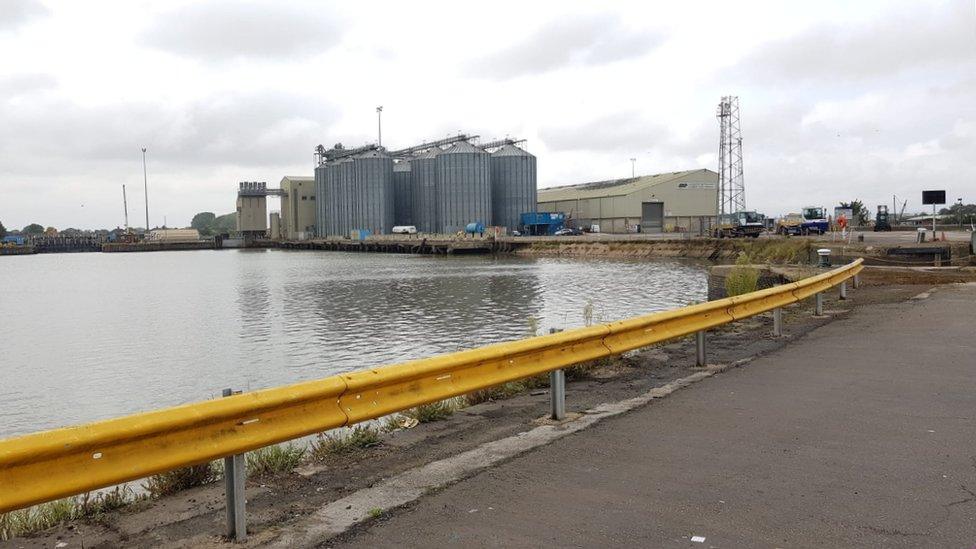
In the 13th Century, the port was one of the most important in England and traded wool, cloth and salt with the Hanseatic League of central and northern Europe.
The arrival of the railway helped create the 350m (1,148 ft) Alexandra Dock, which is 150 years old and still in action, along with the smaller, tidal Riverside Quay and Bentinck Dock, which at 800m (2,624 ft) is almost half a mile long.
The port, now owned and run by Associated British Ports, covers 39 hectares (4.2 million sq ft).
Both docks can accept ships up to 119m (390 ft) long and 13.85 (45ft) wide and up to 4,000 tonnes when full. For context, Ever Acre, said to be the world's largest container ship, is 400m (1,300ft) long.
It handles 400,000 tonnes of cargo a year, including timber, agricultural products, steel, construction materials and cargo for the energy sector.
Its grain silo has a 25,000-tonne capacity, and the port can also store up to 23,000 tonnes of agribulk and cereals.
Together with ABP's other two East Anglian ports, Lowestoft and Ipswich, it contributes £360m to the UK economy each year and supports 5,300 jobs.

Extra ships have been brought in to try to keep up with the current demand for timber, says Stephen Gregory, ship's agent at the port.
"The regular run of shipments has been supplemented by additional ships from different suppliers," he says.
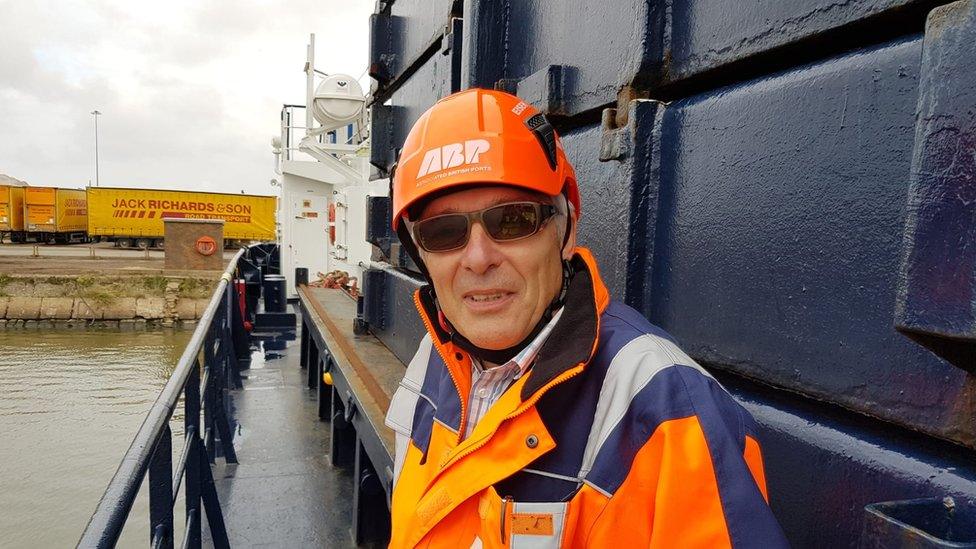
The extra paperwork resulting from the UK's withdrawal from the EU has not dented operations.
"Post Brexit, all the cargoes have had to be customs-cleared, whereas before it just came with a piece of paper and you'd put it in a file," he says. "So there's another level of bureaucracy. You can't let ships leave the port unless they've got customs clearance.
"It has not delayed things, it has just added to the work that some people have to do. There is time to do everything, it is just the matter of having to do it."
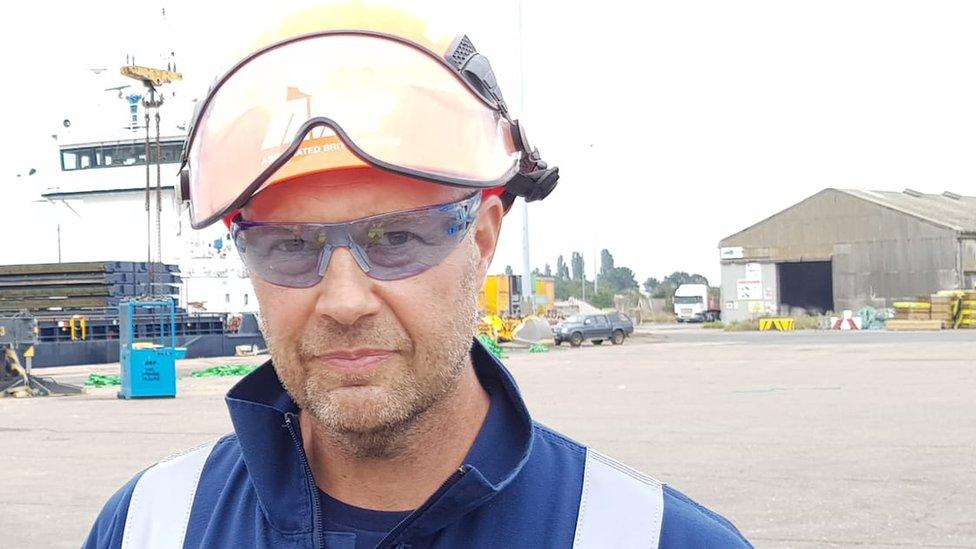
Martin Redhead
Plant operator Martin Redhead has been at King's Lynn for 20 years and is heavily involved in training the next generation of port workers.
"This is the busiest I've ever known the port," he says. "We're stacked up, we've got timber ships behind timber ships. It is what we're good at."
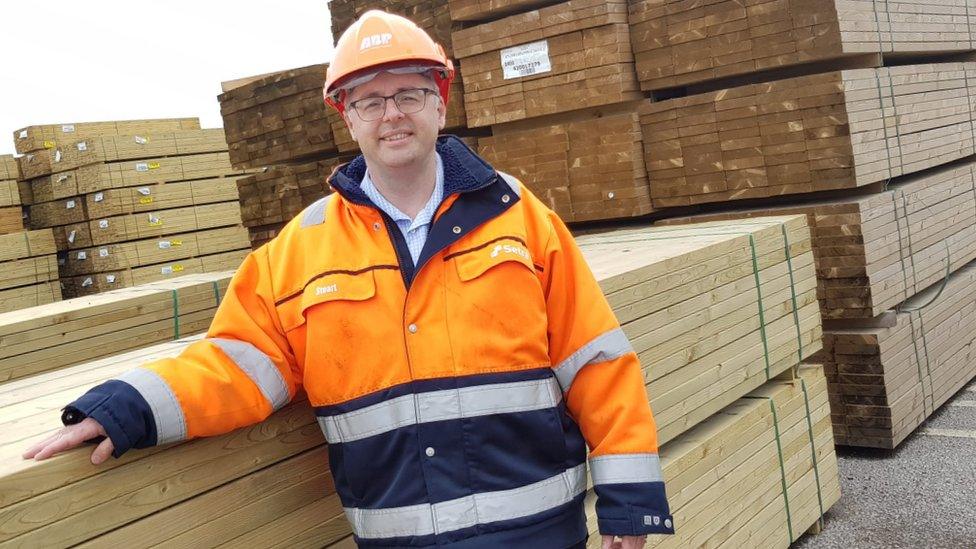
Stuart Newman says people carrying out home improvements has driven growth
"We used to have one monthly vessel coming in to King's Lynn and as the business has grown we can now have three or four vessels with product come in," says Stuart Newman, managing director of Setra Wood Products, a port customer.
"Because of Covid, it has prompted people to carry out home improvements and that sort of thing.
"Our business has grown year on year and we hope to do that once again next year."
The firm processes the timber on three planing lines at the port run by 47 people.
Once it is processed, the timber is sold across the country to third party timber merchants for various uses including cladding, framing and skirting boards.
"The timber industry is in a bit of a bubble at the moment," he says. "We keep talking about this bubble that we're in and asking will it burst?
"But it doesn't show any signs of doing that at the moment."

Find BBC News: East of England on Facebook, external, Instagram, external and Twitter, external. If you have a story suggestion email eastofenglandnews@bbc.co.uk, external